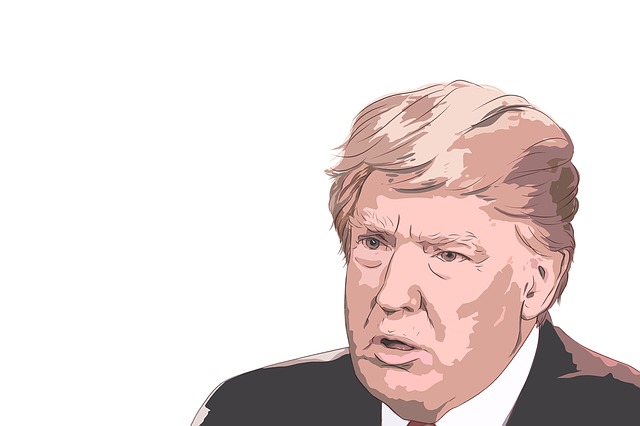
CNN reports that President Donald Trump in December in effect asked Deputy Attorney General Rod Rosenstein for a loyalty oath. Trump’s asking fired FBI Director James Comey for a loyalty oath has been a bone of contention — and, in reality, Trump has often asked for loyalty oaths, even from those who attend his political rallies.
Deputy Attorney General Rod Rosenstein visited the White House in December seeking President Donald Trump’s help. The top Justice Department official in the Russia investigation wanted Trump’s support in fighting off document demands from House Intelligence Chairman Devin Nunes.
But the President had other priorities ahead of a key appearance by Rosenstein on the Hill, according to sources familiar with the meeting. Trump wanted to know where the special counsel’s Russia investigation was heading. And he wanted to know whether Rosenstein was “on my team.”
The episode is the latest to come to light portraying a President whose inquiries sometimes cross a line that presidents traditionally have tried to avoid when dealing with the Justice Department, for which a measure of independence is key. The exchange could raise further questions about whether Trump was seeking to interfere in the investigation by special counsel Robert Mueller, who is looking into potential collusion by the Trump campaign with Russia and obstruction of justice by the White House.At the December meeting, the deputy attorney general appeared surprised by the President’s questions, the sources said. He demurred on the direction of the Russia investigation, which Rosenstein has ultimate authority over now that his boss, Attorney General Jeff Sessions, has recused himself. And he responded awkwardly to the President’s “team” request, the sources said.
“Of course, we’re all on your team, Mr. President,” Rosenstein told Trump, the sources said. It is not clear what Trump meant or how Rosenstein interpreted the comment.
The Justice Department declined to comment for this story. The White House did not comment.Rosenstein’s meeting with the President came as Rosenstein prepared to testify before the House Judiciary Committee. Trump appeared focused on Rosenstein’s testimony, according to a source briefed on the matter, and he brought it up with the deputy attorney general.
Trump seemingly wants those who work for him to be like the ill-fated Reinfield in the 1931 version of Dracula, frantically proclaiming his loyalty:
But this is all part of a pattern with Trump. Put policies and ideology aside. We are witnessing the erasure of all of our “givens” — a.k.a norms. And many of these norms are what has helped the United States to function, thrive and survive as a democracy. It’s easy how these norms are ignored (which creates a new norm) seemingly every day. And the pushback does not counter the ignoring of a norm. Maybe it should not be this way, but, yes: it is a new normal. So what does that trending say about American democracy as it heads further in the 21st century?
Joe Gandelman is a former fulltime journalist who freelanced in India, Spain, Bangladesh and Cypress writing for publications such as the Christian Science Monitor and Newsweek. He also did radio reports from Madrid for NPR’s All Things Considered. He has worked on two U.S. newspapers and quit the news biz in 1990 to go into entertainment. He also has written for The Week and several online publications, did a column for Cagle Cartoons Syndicate and has appeared on CNN.
















